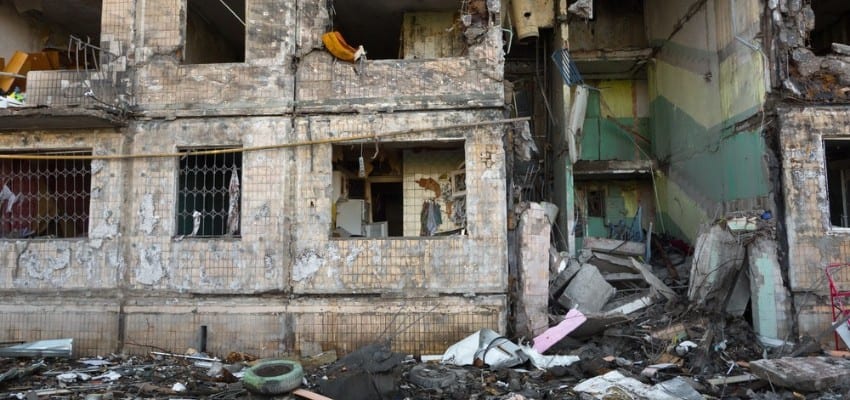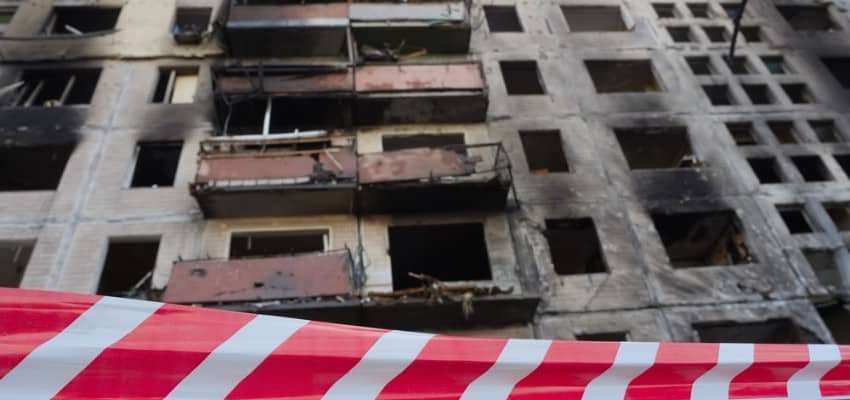|
|
Content Assessment: A Stalemate Condition? Ukraine Conflict Assessments in Maps (March 20-22, 2022)
Information - 95%
Insight - 93%
Relevance - 92%
Objectivity - 90%
Authority - 92%
92%
Excellent
A short percentage-based assessment of the qualitative benefit of the post highlighting the recent Ukraine conflict assessments in maps from the Institute for the Study of War.
Editor’s Note: From time to time, ComplexDiscovery highlights publicly available or privately purchasable announcements, content updates, and research from cyber, data, and legal discovery providers, research organizations, and ComplexDiscovery community members. While ComplexDiscovery regularly highlights this information, it does not assume any responsibility for content assertions.
To submit recommendations for consideration and inclusion in ComplexDiscovery’s cyber, data, and legal discovery-centric service, product, or research announcements, contact us today.
Assessment and Maps*
Ukraine Conflict Assessments – An Overview in Maps
- Institute for the Study of War (ISW), Russia Team
- Critical Threats Project (CTP), American Enterprise Institute
General Assessment Background Info
- ISW systematically publishes Russian campaign assessments that include maps highlighting the assessed control of terrain in Ukraine and main Russian maneuver axes.
- These maps augment daily synthetic products that cover key events related to renewed Russian aggression against Ukraine.
One of the most accurate and detailed sources for ongoing updates on the Ukraine crisis is the Ukraine Conflict Update from the Institute for the Study of War. The Institute for the Study of War (ISW) is a 501(c)(3) organization and produces strictly non-partisan, non-ideological, fact-based research. ISW seeks to promote an informed understanding of war and military affairs through comprehensive, independent, and accessible open-source research and analysis. ISW’s research is made available to the general public, military practitioners, policymakers, and members of the media. Providing a daily synthesis of key events related to the Russian aggression against Ukraine, ISW updates may be beneficial for cybersecurity, information governance, and legal discovery professionals as they follow the business, information technology, and legal trends and trajectories impacted by the current Ukraine conflict.
Russian Offensive Campaign Assessment – Special Report on March 22, 2022
The initial Russian campaign to invade and conquer Ukraine is culminating without achieving its objectives—it is being defeated, in other words. The war is settling into a stalemate condition in much of the theater. But the war isn’t over and isn’t likely to end soon. Nor is the outcome of the war yet clear. The Russians might still win; the Ukrainians might win; the war might expand to involve other countries; or it might turn into a larger scale version of the stalemate in Ukraine’s east that had persisted from 2014 to the start of Russia’s invasion in February 2022. The failure of Russia’s initial military campaign nevertheless marks an important inflection that has implications for the development and execution of Western military, economic, and political strategies. The West must continue supplying Ukraine with the weapons it needs to fight, but it must now also expand its aid dramatically to help keep Ukraine alive as a country even in conditions of stalemate.
Read the complete special report titled What Stalemate Means in Ukraine and Why It Matters.
Ukraine Conflict Update on March 22, 2022
- The Kremlin is unlikely to withdraw its maximalist political demands of Ukraine in ongoing negotiations, despite the Russian military failing to achieve its objectives.
- The Kremlin staged a 195,000-person rally in Moscow attended by President Putin on March 18 to falsely portray high levels of public support for Russia’s invasion of Ukraine.
- Kremlin bans of Facebook, Instagram, and other major western platforms in Russia are likely intended to coerce these companies to meet Russian censorship standards to retain their market share in Russia.
- Russian officials continue to downplay the impact of new sanctions and proposed retaliatory measures against international companies that have left Russia.
- The Kremlin continued to set conditions for a possible false flag chemical or radiological attack in Ukraine by promoting false claims of threats from United States-funded biolaboratories in Ukraine.
- Eastern European NATO heads of state called for a more proactive NATO military posture and response to the Russian invasion of Ukraine in the leadup to an emergency NATO summit on March 24.
- China publicly stated it will not provide financial or military assistance to Russia and pledged further humanitarian assistance to Ukraine but blamed the United States for the war in Ukraine.
Chronology of Maps from March 20 – 22, 2022 (Ukraine, Kyiv, and Mariupol) – Mouseover to Scroll
Ukraine Conflict Maps - 032022-032222Read the latest Ukraine Conflict updates from the Institute for the Study of War
* Shared with direct express permission from the Institute for the Study of War (ISW).
About the Institute for the Study of War Research Methodology
ISW’s research methodology relies on both primary and secondary sources, enabling researchers to develop a comprehensive understanding of the situation on the ground. In order to analyze military and political developments in any given area, ISW’s research analysts must wholly understand the systems of enemy and friendly forces. They must also understand the population demographics, physical terrain, politics, and history of that area. This lays the analytical foundation for understanding the reasons for particular developments and fulfilling their assigned research objectives. ISW analysts also spend time in places like Iraq, Afghanistan, and elsewhere in order to gain a better understanding of the security and political situation and to evaluate the implementation of current strategies and policies. Our researchers compile data and analyze trends, producing a granular analysis of developments in areas of research, producing an accurate, high-resolution, timely, and thorough picture of the situation. ISW’s research methodology guarantees its success and commitment to improve the nation’s ability to execute military operations, achieve strategic objectives, and respond to emerging problems that may require the use of American military power.
About the Institute for the Study of War
The Institute for the Study of War advances an informed understanding of military affairs through reliable research, trusted analysis, and innovative education. We are committed to improving the nation’s ability to execute military operations and respond to emerging threats in order to achieve U.S. strategic objectives. ISW is a non-partisan, non-profit, public policy research organization. Learn more, get involved, and contribute today.
Additional Reading
- [Annual Update] International Cyber Law in Practice: Interactive Toolkit
- Data Embassies: Sovereignty, Security, and Continuity for Nation-States
Source: ComplexDiscovery


























